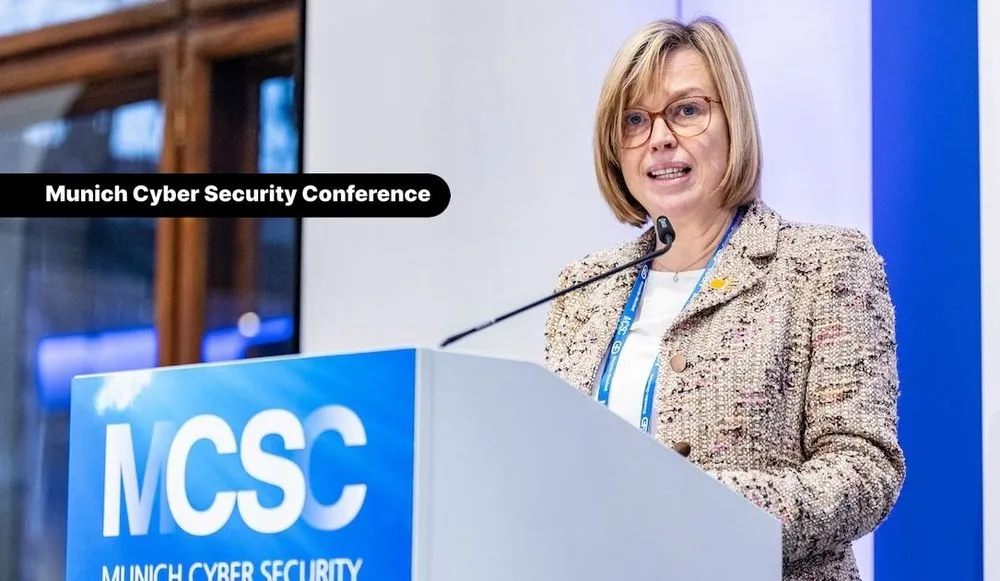Police risk losing society’s trust in fight against cybercrime, warns Europol chief
MUNICH, Germany — Law enforcement agencies risk losing the trust of the societies they protect unless those societies understand why new powers are needed to tackle surging levels of cybercrime, Europol’s chief warned on Thursday.
Speaking at the Munich Cyber Security Conference, Catherine De Bolle — who took the reins at the agency in 2018 — defended law enforcement’s need to be able to lawfully access encrypted data amid controversy over one such attempt by the United Kingdom.
She said that digital criminality had not just been growing in volume year-on-year but also “in its complexity and the impact it has on the lives of millions of citizens,” and as the perpetrators of these crimes are increasingly able to abuse traditional telecoms infrastructure alongside “high-tech crime tools and darkweb marketplaces” there was also a need to improve the capabilities of the agencies tackling those criminals.
But “should law enforcement be unable to address these cases at scale, there is a risk of losing society’s trust in law enforcement and in state institutions at large,” said De Bolle.
Her comments echoed those made earlier in the day by Sir Jeremy Fleming, the former director of signals and cyber intelligence agency GCHQ, when he expressed the need for intelligence agencies to operate with the public’s trust amid a growing scandal over the British government’s reported attempt to access encrypted iCloud accounts.
‘We cannot stand still’
De Bolle praised Europol’s work with international partners over the past year, particularly in disrupting the LockBit ransomware group — arresting and sanctioning several individuals linked to the conspiracy and providing decryption keys to thousands of victims — but she warned “we cannot stand still.”
“Criminals will continue to adapt quickly and evolve, and so must law enforcement. We must continue to invest in creative solutions. We must continue to invest in technical capabilities to take down criminal groups. We also need to ensure lawful access to data, digital data, and develop a legal framework that reflects the reality of cyberspace,” she said.
De Bolle had previously told the Financial Times “you will not be able to enforce democracy” without such legal powers. In her interview with the newspaper, she called on technology giants to do more to cooperate with police on the encryption issue.
She told Munich on Thursday that the complicated threat environment in which cybercrime and state-sponsored threats were becoming increasingly interlinked required better cooperation between civilian and government defenders.
“I really believe that together we can achieve a comprehensive cyberthreat picture, to be better prepared, prevent, and respond to these complex threats. ... We need to move away from a fragmented approach to cyber threats and develop multilateral responses. This should be the key for our collective efforts.”
READ MORE: Munich Cyber Security Conference 2025 Live Updates
Editor's Note, February 19, 2025: Quote from Catherine De Bolle in the fourth paragraph amended to reflect a clarification from Europol.
Alexander Martin
is the UK Editor for Recorded Future News. He was previously a technology reporter for Sky News and a fellow at the European Cyber Conflict Research Initiative, now Virtual Routes. He can be reached securely using Signal on: AlexanderMartin.79



